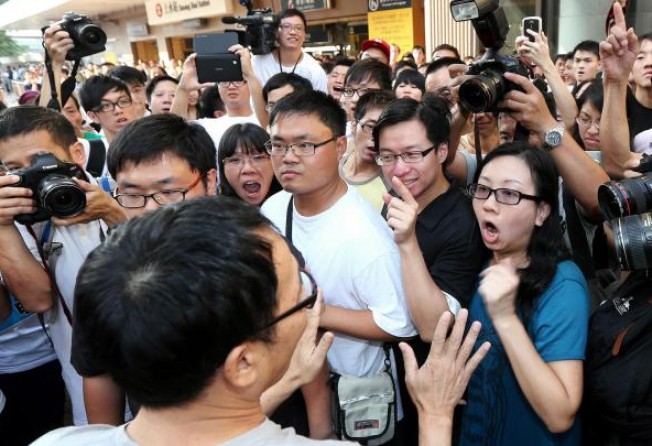Sheung Shui prices soar as mainland traders buy in bulk
Cross-border flood of traders into Sheung Shui inflates cost of shop items by up to 20 per cent

The average price of everyday goods in Sheung Shui is 10 to 20 per cent higher than in nearby districts as mainlanders flood in to snap up products to take across the border.
The town has been at the sharp end of an influx of traders who buy goods in bulk in Hong Kong to dodge high taxes on the mainland. It's also a popular with mainland residents with multi-entry permits who stock up on goods for personal use or for sale online.
Tensions spilled over at the weekend, with clashes at a protest by residents of the town over the effects of the influx.
Reporters visited at least five dispensaries in each of three areas of the New Territories, Sheung Shui, Tai Po and Sha Tin. Prices of products popular with mainlanders, including infant milk formula, Chinese medicine, shampoo, toothpaste and the health drink Yakult, were higher in Sheung Shui.
One brand of infant milk formula sold in Sheung Shui for 10 per cent more than in the other two districts. Chinese medicine, particularly ointment for the joints, was noticeably pricier in the border town: it cost HK$38 there but only HK$28 in Tai Po and Sha Tin dispensaries.
As for food and drinks, lunch sets that cost about HK$27 to HK$35 in Tai Po were about 20 per cent higher in Sheung Shui.
Yakult, a probiotic popular on the mainland due to unfounded claims that it can increase the size of a woman's breasts, cost HK$10.20 a pack in Sheung Shui convenience stores, around 7 per cent more than in Sha Tin.
And residents of Sheung Shui often find there is not even enough stock to go around.
"The staff at the dispensaries will only serve mainlanders because they buy a lot each time. By the time I got to the counter, they would tell me it was all sold out and I had to go to other districts to get baby formula cheaper," a mother in her 40s said.
Northern District councillor Chan Yung attributed the price inflation to the changing attitudes of mainland tourists able to make repeated visits to the city under the Individual Visit Scheme, which began in 2003. They had shifted from visiting for fun to stocking up on supplies.
"The free individual travellers come to Hong Kong and buy goods in bulk near the control points and travel back to Shenzhen at the end of the day," Chan said.
A visitor from eastern Zhejiang province said goods sold in Hong Kong were more reliable than those on the mainland. He said many mainlanders, especially from Guangdong, liked to pick up goods to sell online. "Many mainlanders buy luxury items and sell them on Taobao [website]. They can make quite a lot in the middle," he explained, "Nowadays, they like to buy necessities and toiletries from the borders of Hong Kong in bulk and sell it online."